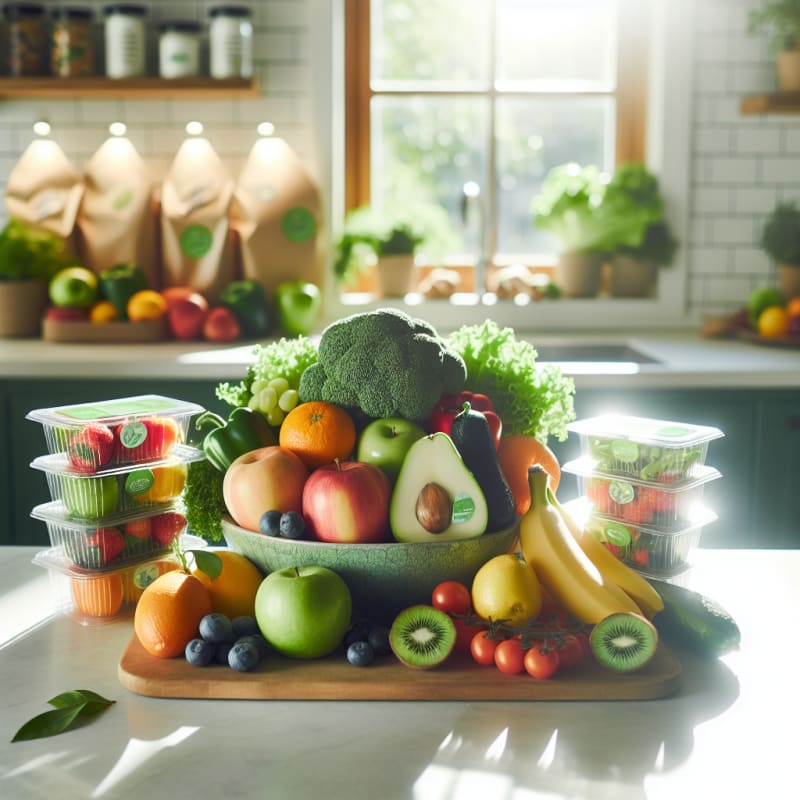The 10 Best and Worst Foods for Your Kidneys, According to Dietitians The 10 Best and Worst Foods for Your Kidneys, According to Dietitians When it comes to your kidney health, what you eat truly matters. With rising rates of chronic kidney disease (CKD) and food sensitivities, making smart food choices is more important than ever. This guide, based on insights from registered dietitians and the latest AOL.com article, will help you understand the best and worst foods for your kidneys, recent food safety news, and how tools like Food Scan Genius can simplify your shopping experience. Why Kidney Health Matters Your kidneys filter waste, balance fluids, and regulate blood pressure. Poor diet can accelerate kidney damage, especially for those with diabetes, hypertension, or a family history of kidney disease. According to the CDC, over 37 million Americans have CKD, and many are unaware of it. Top 10 Foods: Best and Worst for Your Kidneys Best Foods Why They’re Good Worst Foods Why They’re Bad 1. Red Bell Peppers Low in potassium, rich in vitamins A & C 1. Processed Meats High sodium and preservatives strain kidneys 2. Cabbage Low potassium, high fiber 2. Canned Soups Often high in sodium 3. Cauliflower Rich in vitamin C, low potassium 3. Pickles & Relishes High sodium content 4. Blueberries Antioxidants, low sodium/potassium 4. Dark-Colored Sodas Contain phosphorus additives 5. Egg Whites High-quality protein, low phosphorus 5. Avocados Very high in potassium 6. Garlic Flavorful, reduces need for salt 6. Dairy Products High in phosphorus and potassium 7. Apples Fiber-rich, low potassium 7. Bananas High in potassium 8. Onions Flavorful, low potassium 8. Oranges & Orange Juice High potassium 9. Cranberries Urinary tract health, low potassium 9. Potato Chips & Snack Foods High sodium and potassium 10. Olive Oil Healthy fats, anti-inflammatory 10. Instant Noodles Loaded with sodium and additives What Dietitians Recommend for Kidney Health Limit sodium: High sodium can worsen kidney function (PubMed). Watch potassium and phosphorus: Especially important for those with CKD (National Kidney Foundation). Choose whole, minimally processed foods: Reduces exposure to additives and excess salt. Stay hydrated: Water helps flush toxins. Recent Food Safety News: What Kidney-Conscious Shoppers Need to Know Food Recalls: The FDA recently recalled several processed meat products due to listeria contamination, which can be especially dangerous for people with weakened immune systems, such as those with CKD. Labeling Laws: The U.S. FDA requires clear labeling of major allergens, but the EU (EFSA) mandates even stricter disclosure, including for additives and preservatives (EFSA). Emerging Trends: Plant-based products are on the rise, but some contain high potassium or phosphorus additives. Always check ingredients, especially if you have kidney concerns (NY Times). How Food Scan Genius Simplifies Kidney-Friendly Shopping If you have kidney concerns or food sensitivities, decoding ingredient lists can be overwhelming. The Food Scan Genius app lets you scan barcodes to instantly see if a food is kidney-friendly, low in sodium, or free from specific additives. It cross-checks U.S. and EU labeling standards, so you can shop confidently—even when traveling or buying imported foods. User Testimonial: “Since using Food Scan Genius, I can quickly avoid high-sodium snacks and hidden phosphorus additives. It’s a lifesaver for my kidney health!” — Jamie R. U.S. vs. EU: Ingredient Labeling and Allergen Disclosure U.S. (FDA): Requires labeling of top 9 allergens and sodium content. Some additives may be listed under general terms. EU (EFSA): Requires more detailed disclosure, including all food additives and specific allergen warnings. Phosphorus and potassium additives must be clearly listed. For kidney patients and those with sensitivities, the EU’s approach offers more transparency. Food Scan Genius helps bridge these differences, offering ingredient insights regardless of origin. FAQs: Kidney Health and Smart Food Choices Which foods should I avoid if I have kidney disease? Avoid foods high in sodium, potassium, and phosphorus, such as processed meats, canned soups, dairy products, bananas, and dark sodas. Are plant-based foods always safe for kidneys? Not always. Some plant-based foods and meat alternatives contain high potassium or phosphorus additives. Always check ingredient lists or use an app like Food Scan Genius. How can I spot hidden sodium or phosphorus in packaged foods? Look for ingredients ending in “-phosphate” or “sodium.” Use Food Scan Genius to instantly flag these in barcodes or ingredient lists. Conclusion: Make Every Ingredient Count Understanding which foods help or harm your kidneys is crucial for long-term health—especially as food safety alerts, labeling laws, and dietary trends evolve. By staying informed, reading labels carefully, and using tools like Food Scan Genius, you can make smarter, safer choices every time you shop. For anyone with kidney concerns or food sensitivities, knowledge is power—and Food Scan Genius puts that power in your pocket. References: CDC: Chronic Kidney Disease in the United States PubMed: Dietary Sodium and Kidney Disease National Kidney Foundation: Potassium and Your CKD Diet FDA: Recalls, Market Withdrawals, & Safety Alerts EFSA: Food Labelling NY Times: Are Plant-Based Meats Healthy?





